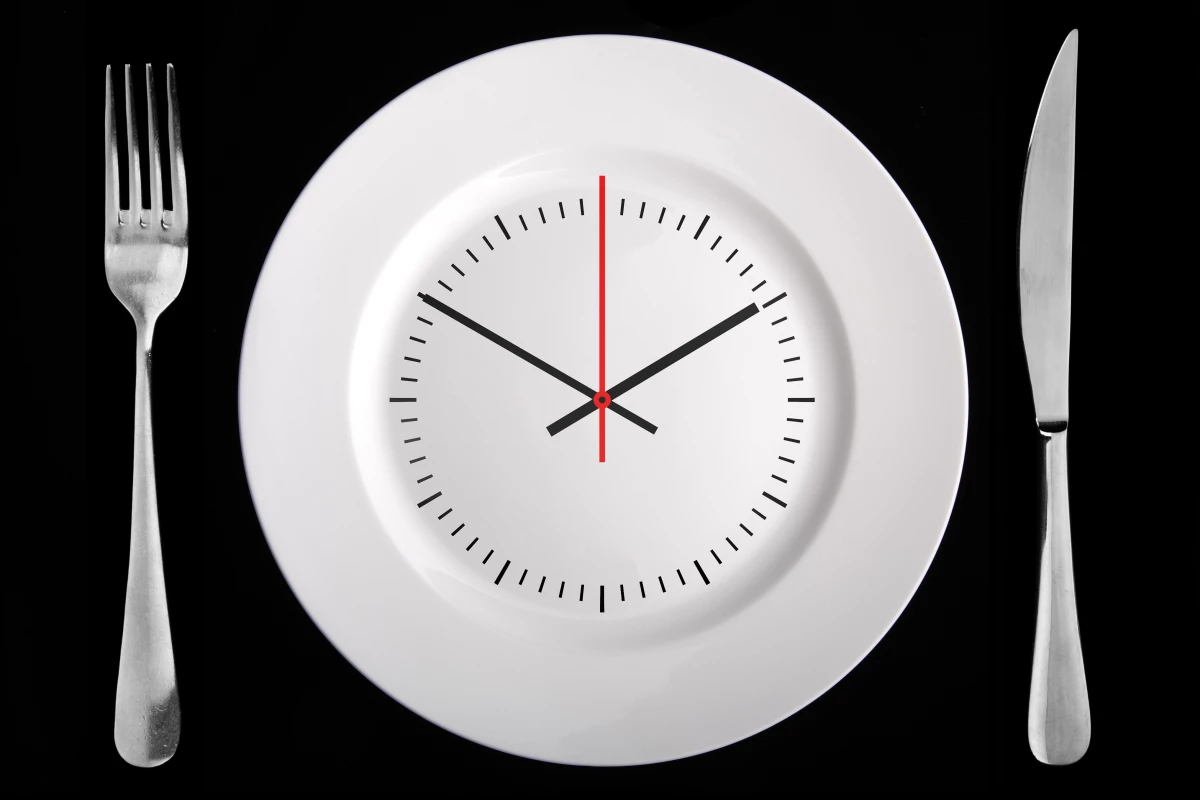A recent study testing the popular dietary practice of time-restricted eating has delivered positive results, indicating greater weight loss compared to calorie counting. But researchers are still mired in a cloud of discordant findings, unable to clearly demonstrate whether the weight loss benefits of this intermittent fasting strategy are due to anything other than trial participants simply eating less.
One common form of intermittent fasting involves limiting food intake to a small stretch of time in any 24-hour period. So for example, the 16:8 method involves only eating across an eight-hour window every day, such as 8am to 4pm.
Over the last few years a decent body of research has accumulated, investigating the benefits and limitations of this way of eating. Some studies have found time-restricted feeding can be an effective weight loss tool while others have found it no more helpful at dropping the pounds than simple calorie counting.
Earlier this year one of the longest trials ever conducted on the dietary practice concluded the majority of weight loss associated with time-restricted feeding can be attributed to a simple reduction in overall calorie intake, and not any particular metabolic mechanism associated with the intermittent fasting strategy.
That study followed 139 subjects for twelve months. All participants were required to follow a strict calorie-controlled diet, but half of the cohort could only eat between 8am and 4pm every day.
While the time-restricted group did show a slightly greater, albeit statistically insignificant, drop in body weight compared to the all-day eating group, the researchers attributed the difference to lowered caloric intake. Basically, limiting food intake to a small window each day seems to lead to a person generally eating less.
A new study, published in the journal JAMA Internal Medicine, is again presenting evidence for the weight-loss benefits of time-restricted eating. This time, researchers recruited 90 obese subjects and split them into two groups.
Both groups were directed to eat a hypocaloric diet (equivalent to between 1,000 and 1,500 calories per day depending on individual resting state energy expenditure), but one group was only allowed to eat between 7am and 3pm each day. The trial lasted 14 weeks.
“The key finding of this study is that eTRE [early time-restricted eating] was more effective for losing weight than eating over a period of 12 or more hours,” the researchers write in the new study. “In our trial, the eTRE group lost an additional 2.3 kg (5 lb) relative to the control group, an approximately 50% improvement in weight loss. For comparison, prior studies are about evenly divided on whether TRE reduces body weight and are mixed for body fat, while studies that shift food intake to the morning and/or earlier in the daytime have more consistently reported weight loss.”
Unfortunately, the new study cannot answer the million-dollar question hovering over all TRE research - are people losing more weight because they are just eating less? The researchers do calculate the extra weight loss seen in the TRE group equaled around 200 less calories consumed each day.
Speaking to JAMA, study author Courtney Peterson said those in the TRE group did not eat fewer meals than the control group but there may be evidence of them eating less during those meals. So the jury is still out over whether this kind of dieting is any different in regards to weight loss than strict caloric control.
“While this study adds to the current evidence base, it remains difficult to say with any certainty if time-restricted feeding is a superior approach to weight loss than eating fewer calories throughout the day,” said Simon Steeson, a researcher from the British Nutrition Foundation who did not work on this new study. “However, for individuals who may find that this pattern of eating fits better with their lifestyle and preferences, time-restricted feeding is one option for reducing overall calorie intake that might be a suitable approach for some.”
As with any diet, the big question is whether healthy behaviors can be sustained over long periods of time. The challenge with TRE is that we live in a world where dinner is a profoundly ingrained social activity. Is it likely someone can effectively sustain a dietary practice where no food is consumed in the evening?
Peterson accepts this limitation of TRE and said her study did allow for one day per week for breaking the TRE pattern. On average, participants in the trial did adhere to the TRE pattern for five days every week, suggesting some amount of "break days" could be a helpful way to sustain this dietary practice for long periods of time.
The study was published in the journal JAMA Internal Medicine.





